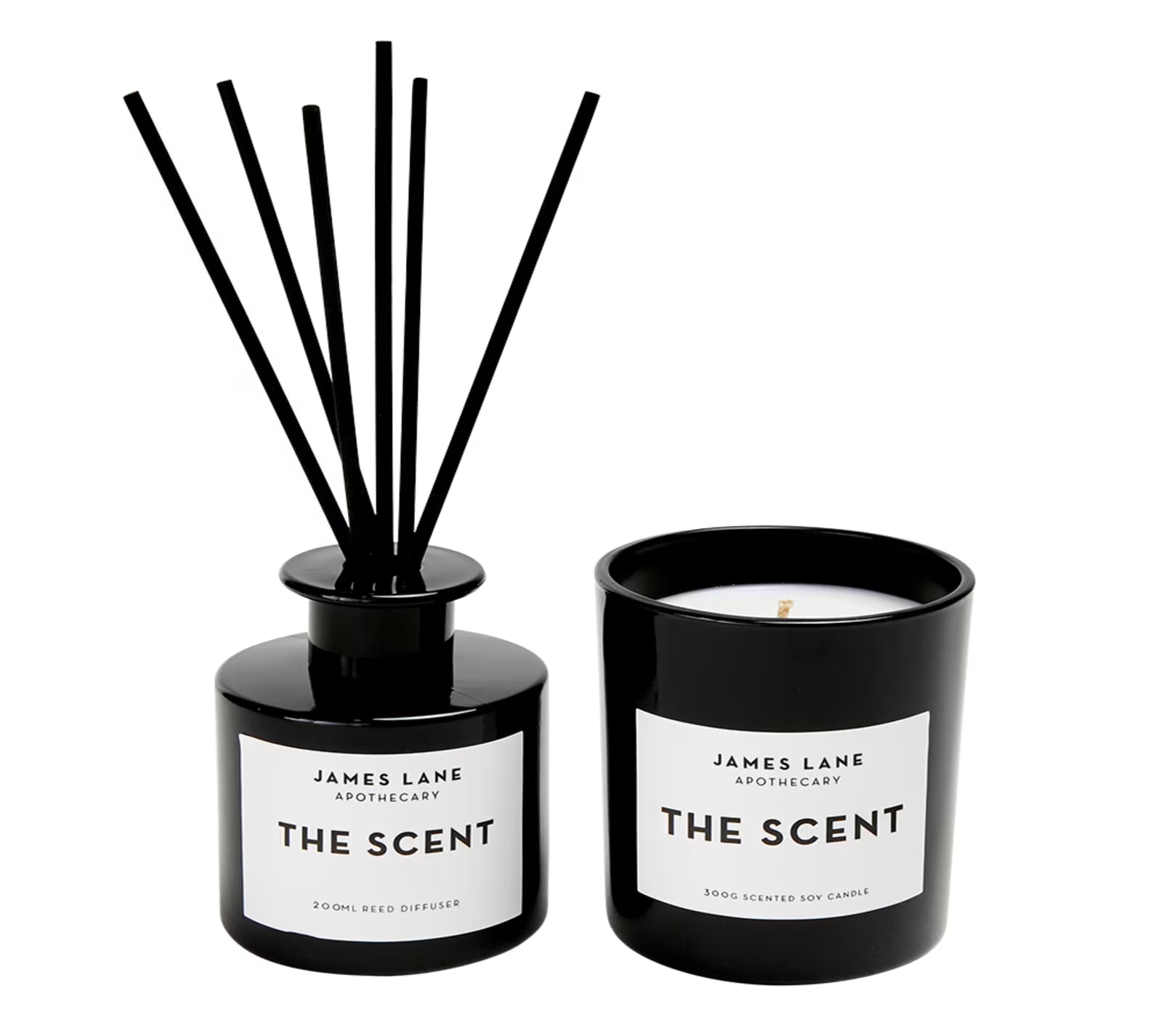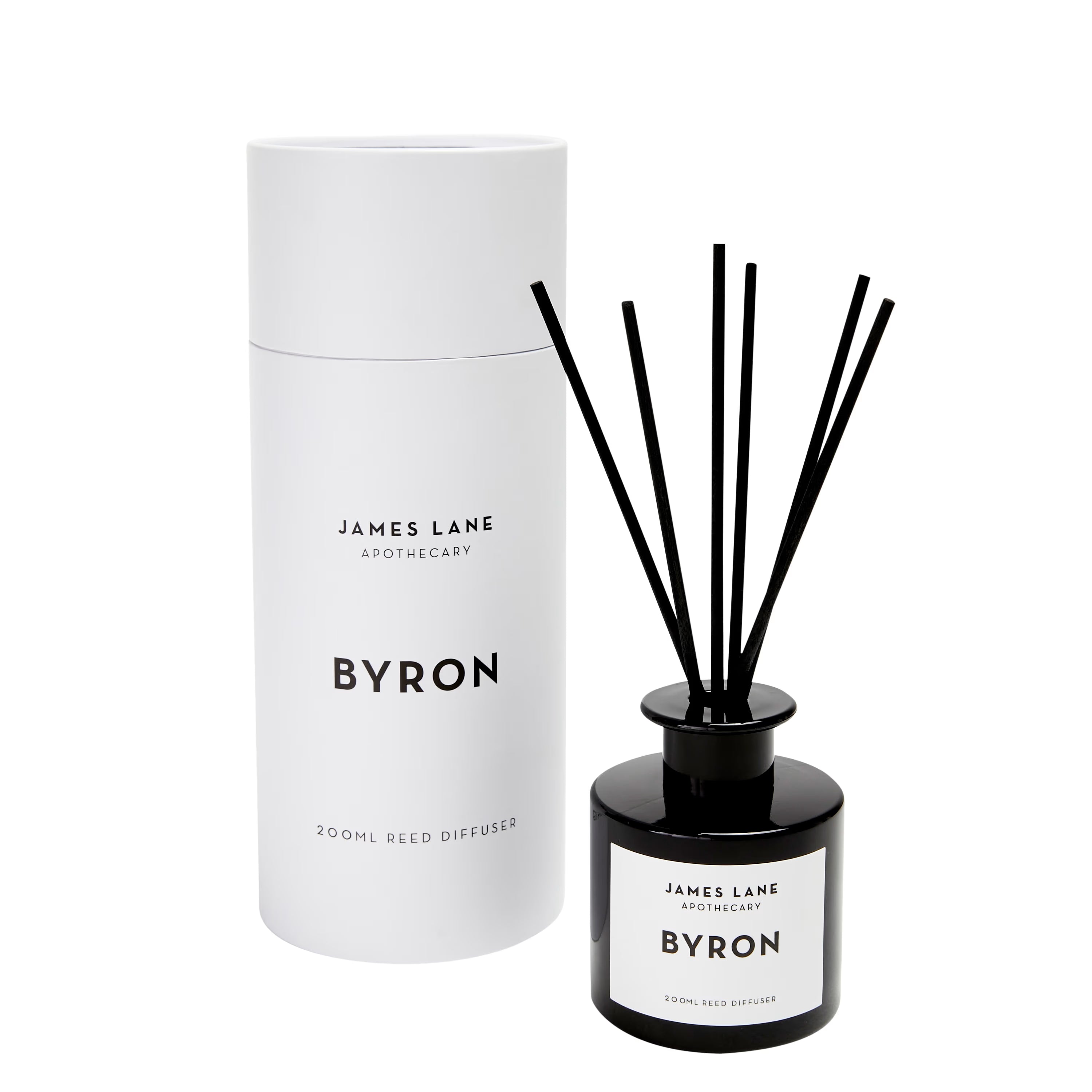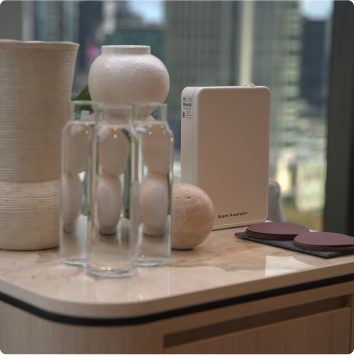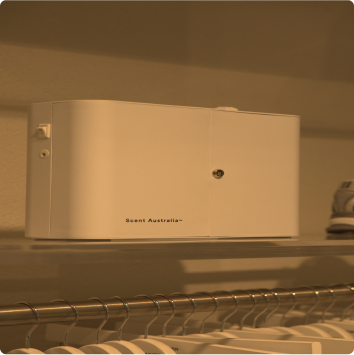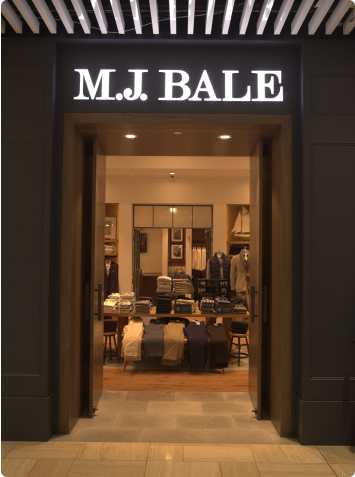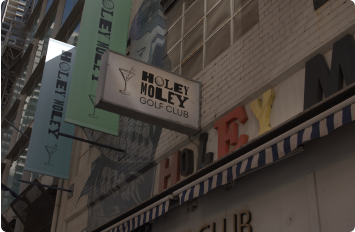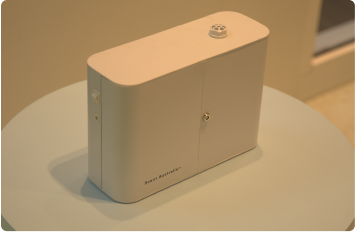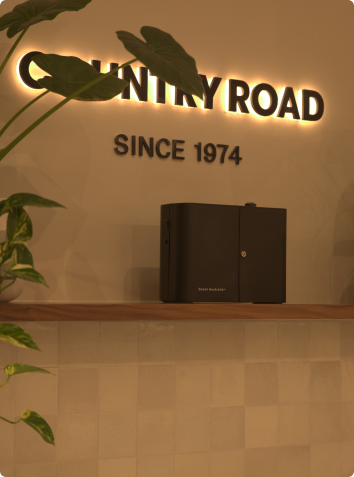When it comes to depicting a hotel experience, our lexicon usually describes a journey primarily of sights—soothing room ambience, extravagant lobby décor and so on—with glossy, high-resolution photographs as worthy complements. Next on the list is sound, portrayed as crashing ocean waves, birds chirping peacefully at a bucolic resort, or for urbanites, a quiet space fit for a restful sleep between harried business days. Meanwhile, restaurants and bars excite with poetic verses that stimulate the palate, while bed sheet linens and marble-tiled bathrooms do wonders to arouse the sense of touch.
What’s often left out of the picture is the fifth spoke on the wheel: smell. Not that the people who write your promotional materials morally abstain from infusing this, but there’s simply nothing in the room, lobby or hallways to spark an aromatic reaction. Our sense of smell can at times be highly underrated for its powerful psychological effect on people’s moods, but more can be done to activate it in a positive way.
For reference, the neuroscience terminology to familiarize yourself with are the olfactory bulb, the processing center for smells, and the limbic system, which controls emotions and memories. Both of these anatomical features are considered evolutionarily old when compared to the likes of the prefrontal cortex, which handles complex cognitive processes like problem solving and abstract thought. In fact, smell is often dubbed the oldest sense because of its tightly wired associations with primal emotional states in the limbic system.
Scent as design
Scents are shrewdly used around the globe for desirable effects, most prominently in the retail industry. The grand objective is for consumers to form a deeper connection with products and more esteemed perceptions of brands to increase sales.
Applying these ploys to hotels presents three general scenarios worth discussing.
First is when a guestroom has an off-putting stench. For this, expect problems. Just as pleasant aromas can relax and rejuvenate, bad smells can ignite the fear and danger centres in a person’s brain, causing discomfort and chagrin. The culprits for such stinks might be something as cantankerous as dirty carpets or old pipes. Regardless of the replacement costs, if you ever want to deliver true guest satisfaction, you cannot have foul odours pervade your rooms.
Next is neutral. A good smell counts for you, a bad one against, but the middle ground, where most hotels sit, offers nothing to activate this sense. As such, hoteliers are missing a key opportunity to foster an emotional bond with consumers. There’s only so much you can do to outmatch your competitors in terms of opulent décor, the size of the in-room plasma television, linen thread counts or the noiselessness of your temperature modulators. Add an old school weapon to your arsenal; add scent.
On the positive side of things, some hotels are already using exclusive Signature Scents. Upon arriving, this pleasurable blend instantly relaxes you and completes the in-room ambience.
The scent will create a slice of sweet nostalgia yearning for you to return. It’s but one more memorable cue that enhances an affinity for the property and no doubt a unique fragrance contributes to customer loyalty.
This is one personal instance, but the hospitality industry is rife with other ambient-scenting success stories, even if those victories aren’t directly quantifiable. Mandalay Bay Hotel & Casino in Las Vegas pumps coconut spice throughout its lobby, shops and casino floor—a fragrance that is striking yet subtle and evocative of the hotel’s tropical theme while masking some of the casino’s lingering cigarette pungency. Indeed, many other Las Vegas establishments, notably the Bellagio, Harrah’s Las Vegas and MGM Grand Hotel & Casino, all use similar ambient scenting to mask tobacco and for branding.
Outside of the casino business, look to the Westin Hotels & Resorts’ white tea perfume or Mandarin Oriental’s conference sprays designed to enhance meeting productivity. Many other major chains are worth investigating for their scent marketing including Hilton Worldwide, InterContinental Hotels Group, Marriott International and Sofitel.
Your hotel’s smell is big business, and now is the time for everyone to get involved, whether you’re a global chain or an independent operator.
Apply scent to your property
Building on these examples, start to think of ways to integrate scents for your guestrooms, lobby or spa. Restaurants already should have this one covered in a positive manner. Although, if they don’t, that’s cause for a whole other discussion.
The key is to ensure that the scent is ambient, pervading the entirety of a space without being noticeably and constantly perceptible. And there are options to fit your every need, from devices that attach to your central air conditioning units to our portable unit that can be wall-mounted to fit the decor.
The bottom line is that you should be doing something in the scent department. This is a friendly wakeup call for you to brainstorm how this underrated sense can be harnessed as a way to further guest satisfaction and develop a loyal consumer base.
This article was originally published in Hotel News Now.



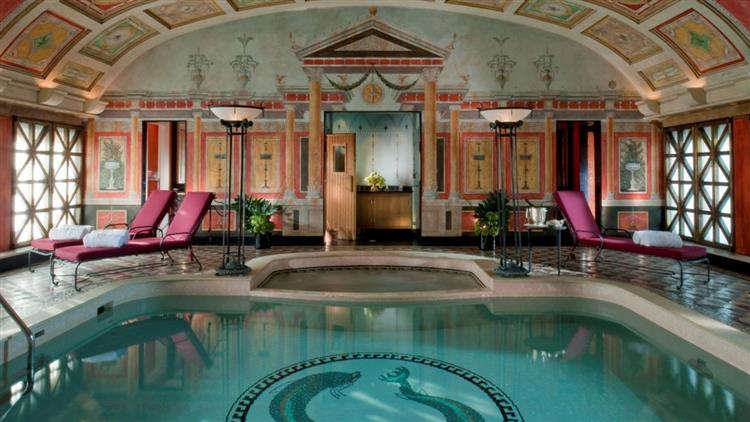






 Brian Clark
Brian Clark


